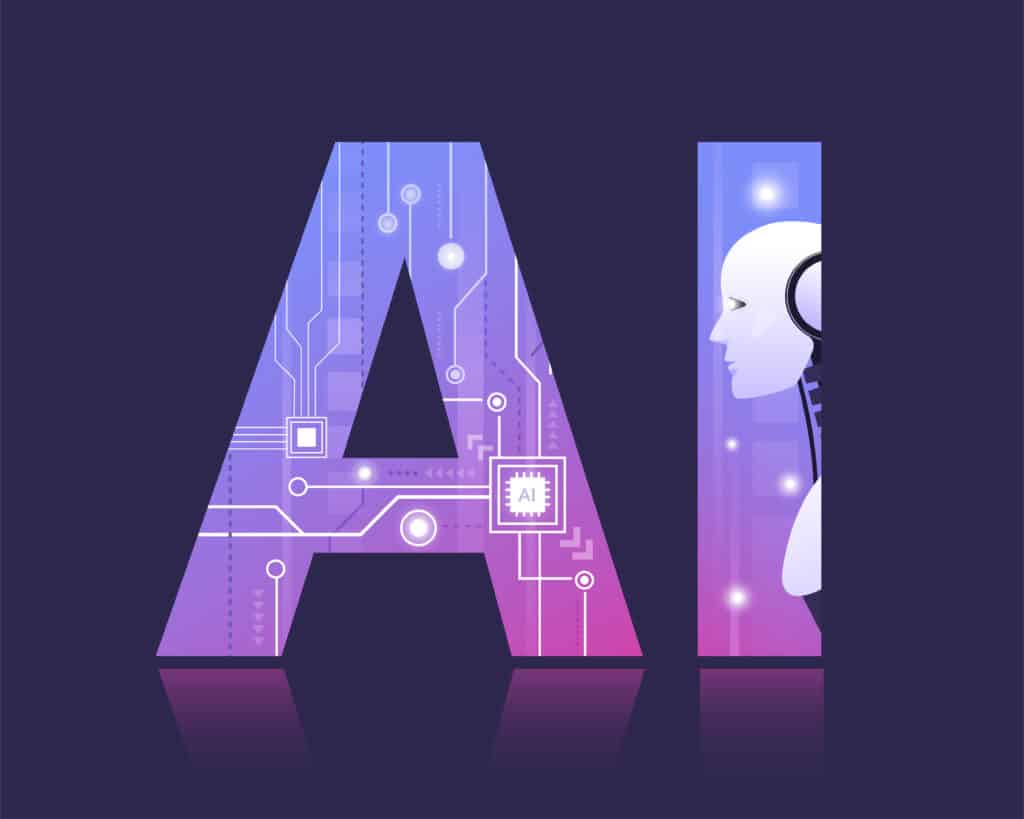In the dynamic realm of event management, the advent of AI marks a significant shift, transforming traditional practices into a more efficient, data-driven process. This evolution has opened new avenues for leveraging AI in events, enabling planners to streamline operations and enhance decision-making. As we explore AI in event management, we delve into its impact on various aspects of planning, from logistics optimization to personalized attendee experiences. Embracing AI not only signifies keeping pace with technological advancements but also unlocks new potentials for creating more successful, memorable events. This exploration into AI-powered event planning will reveal how it’s reshaping the industry, making event management smarter and more intuitive.

Understanding AI in Event Planning
Understanding AI in event management requires a deep dive into what AI is and how it’s revolutionizing the industry:
- Advanced Learning Algorithms: AI in event management utilizes sophisticated algorithms capable of learning and adapting from data. This continuous learning process enables AI to provide increasingly accurate predictions and insights over time.
- Diverse AI Applications: AI technologies in event management include predictive analytics for forecasting attendance, machine learning for optimizing event layouts, and natural language processing for enhancing attendee interactions, such as through AI-powered chatbots.

- Data-Driven Customization: AI leverages attendee data to customize events at an individual level. By analyzing past behavior, preferences, and interactions, AI can tailor recommendations, from session suggestions to networking opportunities, enhancing the overall attendee experience.
- Proactive Problem Solving: AI’s predictive capabilities are invaluable in identifying potential issues before they arise, allowing for proactive solutions. This includes predicting logistical challenges, attendee flow issues, or even interest in various sessions or activities.
- Automating Repetitive Tasks: AI automates numerous routine tasks in event planning, such as registration processes, feedback collection, and even aspects of event marketing. This automation increases efficiency and allows event planners to allocate more time to strategic planning and creative tasks.
- Informed Strategic Decisions: By providing actionable insights and data analysis, AI empowers event planners to make more informed decisions, from selecting the ideal venue to creating effective marketing campaigns. This data-driven approach significantly reduces guesswork and enhances the success rate of events.
AI-Enhanced Logistics and Operations in Event Management
AI’s role in streamlining event logistics and operations is multifaceted, addressing various aspects of event management:
- Optimizing Resource Allocation with AI: AI’s predictive capabilities ensure optimal resource allocation, accurately forecasting needs based on attendee data. This extends to all aspects of event planning, including venue size, catering quantities, and even staffing requirements, ensuring that resources are used efficiently, cost-effectively, and with minimal waste.
- Streamlined Scheduling and Event Coordination: AI automates complex scheduling tasks, balancing multiple elements like speaker availabilities, session overlaps, and venue logistics. This results in a more coherent event timeline and smoother attendee experience.
- AI-Driven Supply Chain Management: AI assists in intelligent supply chain management, analyzing patterns to predict the exact quantities of materials needed, optimizing delivery schedules, and identifying the most cost-effective suppliers, thus minimizing delays and reducing the environmental impact.
- Automated Vendor and Venue Management: By analyzing past performance data, attendee feedback, and logistical needs, AI can assist in selecting the best vendors and venues for specific events. This includes assessing suitability based on size, location, amenities, and cost. AI in events can also facilitate automated communications and negotiations with vendors, streamlining the entire process and ensuring that all logistical aspects are harmoniously aligned for the event.
- Advanced Crowd Management and Safety Measures: Utilizing AI for crowd management enhances attendee safety and comfort. By analyzing attendee movement patterns and densities, AI systems can anticipate and prevent overcrowding, manage emergency situations more effectively, and optimize the use of space.
- Efficient Transportation and Accommodation Logistics: AI’s role in managing transportation and accommodation logistics is invaluable. It can recommend the most efficient travel routes, arrange group accommodations based on attendee preferences, and even suggest environmentally friendly transportation options.

AI for Enhanced Attendee Experience in Event Planning
AI’s role in enhancing attendee experiences in events is profound and multifaceted, bringing about a new era of personalized and interactive event participation:
- Deep Personalization of Attendee Experiences: AI leverages data to offer highly personalized event experiences. By analyzing past behavior and stated preferences, AI can curate individual attendee paths, recommending sessions, workshops, and networking opportunities that align with their interests.
- Facial Recognition for Efficient Entry and Security: Utilizing facial recognition technology, AI streamlines the entry process, significantly reducing queues and enhancing security measures. This system offers a hassle-free, secure entry experience, improving attendee satisfaction from the very first interaction.
- Adaptive Event Environments Based on Real-Time Feedback: AI’s capability to process real-time feedback allows for dynamic adaptation of the event environment. Whether it’s adjusting session topics based on ongoing interest or modifying environmental factors like lighting and temperature, AI ensures that the event atmosphere remains conducive and responsive to attendee needs.
- AI-Driven Interactive Sessions: Incorporating AI into sessions transforms them into interactive, engaging experiences. AI assists in sorting and prioritizing questions during Q&A sessions, ensuring that relevant topics are addressed, and audience engagement is maximized.
- Optimized Networking Through AI: AI significantly enhances networking opportunities by intelligently matching attendees based on shared interests, professional goals, or industry sectors. This approach fosters more meaningful interactions and connections, enhancing the value of the event for participants.

Data-Driven Decision Making with AI in Event Management
AI in events revolutionizes decision-making through in-depth data analysis and predictive modeling, leading to unprecedented efficiency and accuracy:
- Strategic Insights for Event Planning: AI’s comprehensive data analysis offers strategic insights, guiding choices on venues, scheduling, and themes. This analysis considers various factors like historical attendance patterns, seasonal trends, and competitor events, leading to more informed and effective planning decisions.
- Accurate Predictions for Enhanced Planning: Utilizing predictive analytics, AI can accurately forecast crucial aspects like attendee numbers, resource requirements, and engagement levels. This foresight is vital for effective budgeting, marketing, and logistics planning, reducing waste and increasing efficiency.
- Adaptive Decision Making in Real-Time: AI systems provide real-time data analysis during events, aiding in dynamic decision-making. This can include managing attendee flow, adjusting schedules in response to session popularity, or reallocating resources as needed, ensuring a smooth event flow.
- Post-Event Insights for Future Success: After the event, AI tools analyze feedback and performance to identify successes and areas for improvement. This post-event analysis is critical for refining strategies for future events, ensuring each one is better tailored to attendee needs and preferences.
- Enhancing Attendee Engagement: AI-driven data analysis can also guide decisions that directly impact attendee engagement and satisfaction. From personalized content delivery to optimized event layouts, AI in events helps create more engaging and attendee-focused events.
- Risk Management and Contingency Planning: AI assists in identifying potential risks and developing contingency plans. By analyzing various scenarios and their probabilities, AI aids in creating robust risk management strategies, ensuring a smoother event execution.
AI in Event Marketing and Promotion
AI in events dramatically enhances the efficacy and reach of event marketing and promotion efforts:
- Data-Driven Audience Targeting: AI in events profoundly transforms audience targeting by analyzing comprehensive data sets, including past attendance, engagement behavior, and even social media interactions. This enables highly customized marketing strategies that resonate deeply with specific audience segments, ensuring more effective and engaging communication.
- Refined Audience Segmentation: AI’s advanced segmentation tools break down the audience into specific groups, allowing for customized marketing strategies. This segmentation is based on a variety of factors, including past event attendance, engagement levels, and personal preferences.
- Efficient Allocation of Marketing Resources: AI optimizes marketing spend by identifying the most effective channels and timing for advertising. By predicting which marketing efforts will yield the best results, AI ensures that budget allocations are both efficient and effective.
- AI-Enhanced Content Creation and Distribution: From generating engaging event descriptions using natural language processing to optimizing the distribution of promotional materials across various channels, AI ensures content not only appeals to the target audience but also reaches them through the most effective mediums. This ensures a consistent and appealing narrative across all marketing materials, enhancing brand coherence and event promotion effectiveness.
- Social Media Strategy Optimization: Utilizing AI to analyze trends and engagement patterns on social media enables a more strategic approach to content distribution. This involves determining the best types of content, optimal posting times, and most engaging platforms for different audience segments.
- Predictive Analysis for Marketing Strategies: AI’s predictive analytics provide insights into the potential success of various marketing approaches. This enables real-time adjustments to strategies, ensuring maximum impact and ROI from marketing efforts.
Challenges and Limitations of AI in Event Planning
While AI offers numerous benefits in event management, there are challenges and limitations to consider:
- Implementation Complexity: Integrating AI into existing systems can be complex. Event planners must ensure compatibility with existing systems and possibly invest in new infrastructure, which can be both time-consuming and costly.
- Data Privacy and Security Concerns: With AI relying heavily on data, issues around data privacy and security are paramount. It’s crucial to adhere to data protection laws and ensure secure handling of attendee information.
- Dependence on Quality Data: AI’s effectiveness is contingent on the quality of data fed into it. Inaccurate or insufficient data can lead to poor AI performance, affecting decision-making and outcomes.
- Balancing AI and Human Elements: It’s important to find the right balance between automated AI processes and the human touch. Over-reliance on AI can lead to a lack of personalization, which is crucial in event planning.
- Understanding AI Limitations: AI, while powerful, is not a panacea. Event planners need to recognize its limitations and understand that it’s a tool to aid, not replace, human decision-making.

Future of AI in Event Planning
The future trajectory of AI in event management is marked by several promising advancements:
- Enhanced Predictive Capabilities: AI in events will provide even more precise predictive analytics, enabling event planners to make more accurate forecasts regarding attendance, attendee preferences, and logistical needs. This level of precision in planning will allow for better resource allocation and reduced wastage, contributing to both cost-effectiveness and sustainability.
- Seamless Integration Across Event Management Platforms: The integration of AI across different event management tools and platforms will become more streamlined. This integration will facilitate a more cohesive planning process, where data flows seamlessly between various systems, enhancing efficiency and reducing the likelihood of errors.
- Advanced Personalization for Attendee Experiences: AI’s role in personalizing the event experience will grow more sophisticated. By analyzing deeper layers of attendee data, AI will be able to offer highly individualized experiences, from tailored event schedules to personalized content recommendations, enhancing attendee satisfaction.
- Real-Time Adaptive Event Management: AI will be capable of making dynamic adjustments during events, responding in real-time to attendee feedback and changing circumstances. This could range from altering session timings to adjusting environmental settings, ensuring optimal attendee comfort and engagement.
- Expanding Scope of AI Applications: The application of AI in event planning will extend into more creative areas. This includes leveraging AI for creating immersive virtual reality experiences, utilizing AI for sophisticated attendee engagement tools like interactive polls and augmented reality features, and enhancing the overall event experience.
Conclusion
The integration of AI in event management marks a turning point in how events are conceptualized, planned, and executed. As we embrace these technological advancements, AI becomes an invaluable asset, enhancing efficiency, decision-making, and attendee experiences. The future of AI in event planning promises even greater innovations, driving the industry towards more personalized, responsive, and successful events. Platforms like Gevme are at the forefront of this evolution, leveraging AI to offer sophisticated event management solutions that align with these emerging trends. Embracing AI in event management not only streamlines operations but also opens new possibilities for creating memorable and impactful events.








